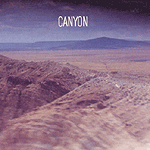 |
 |
|
|
|
| |||
 Canyon
CanyonCanyon [Slowdime] Rating: 6.7 The Southwest is like a different country altogether-- a place where ants drag away their dead for food, antler-less buck carcasses rot on the roadside, and bugs fall like rain on smeared windshields. The unforgiving landscape reeks of slow death, of failed survival, and it breeds children who say frightful, embarrassing things like, "No, that's not death. Death is someone trying to kill you." The Southwest is a land that needs life, but doesn't want it, and won't take it unless you bring it. At least, that's my perspective. The differences between the Southwest and my region of upbringing, the Northeast, couldn't be more drastic-- for obvious reasons that don't beg explanation. Sure, I've been to all but five U.S. states-- even Alaska-- but I've never been to an urban ghetto like, say, Watts. So, while that first paragraph accurately reflects two summers spent in the Southwest-- namely, in the "Four Corners" area-- I'm not entirely qualified to call it the harshest, most depressing place in America, as is my wont. Canyon's self-titled debut apparently follows in the footsteps of Neil Young, Bruce Springsteen, and anyone else (yours truly?) who evoked a landscape with which they weren't entirely familiar. For the Toronto-born Young, that landscape was the South; for New Jersey's Springsteen, it was Nebraska. And, yes, the five members of Canyon-- which includes former members of Boy's Life and the Farewell Bend-- play slow, sparse country- and folk-infused songs. But the similarities just about end there. The opener, "Wheat Penny," instead begs a comparison to Low's I Could Live in Hope, since the song is hardly more than a drift. Like "Words," it modestly sets the pace for the entire album: patient acoustic strumming, a restrained lap steel, and drawn-out male vocals occasionally punctuated by a female's voice. Unlike "Words," though, the overall effect isn't nearly as devastating. Perhaps the vocals are at fault; the lyrics are decipherable only in patches. I can make out, "So keep the liquor coming," but not the previous line. Still, the final minute of the track shows promise, swept up and raised aloft as it is by rushing cymbals and a circling, atmospheric guitar. The next track, "The Long Weekend," opens with a two-note bass, an unnerving harmonica, and a man who mumbles, "Although he ain't been there that long, he's closer to earth than he's ever been before." A different, twangy male lead-- three of them sing on Canyon-- then sings those lines over snare-heavy percussion, a trumpet and a harmonium. "Yellow Tape" continues in the same vein. Wind-like sound effects whirl behind an acoustic guitar, and a man begins: "Oh Lord, please grant me pardon." The yellow tape, it seems, is police tape. For later, accompanied by a humming accordion, he sings, "One night/ Death he came knocking/ I let him in/ Oh, he's an old family friend." Okay, so maybe it's better when you can't make out the words. Fortunately, this is usually the case, allowing one to focus on Canyon's considerable skill at creating a sparse, but deep soundscape. The tumbling "Canyons" tactfully applies distant, vaporous guitar stylings. "It's Running Out" is the most sonically dense track on Canyon, propelled by a Fender Rhodes, persistent cymbal tapping and various other sounds, including handclaps and drumstick clacks. And the 7½-minute closer, "Found," builds an eerie foundation of twinkling metal, ominous background humming, untraceable ringing and even an electric guitar. It's epic only in the long-car-drive sense, of course, since its variations are subtle and gradual. Yet it manages not to drag. In the end, though, Canyon feels as though it were made from the outside looking in. Very little here, lyrically or musically, is gritty or merciless enough to be the Southwest-- the defining characteristic of which they have chosen as their bandname. But Canyon does evoke that landscape sufficiently enough, and I guess that's better than evoking wherever they're actually from. Because we'd all be much worse off if Neil Young wrote "Ontarian Man" instead of "Southern Man," and if, as opposed to Nebraska, Springsteen made an album called New Jersey.
|
|||

